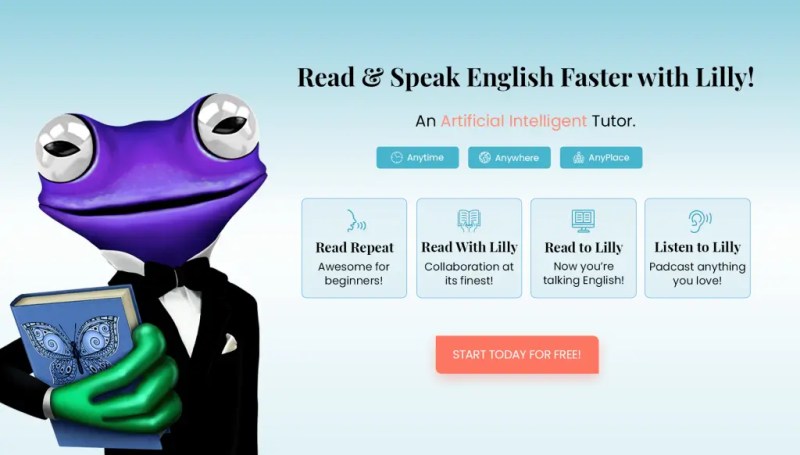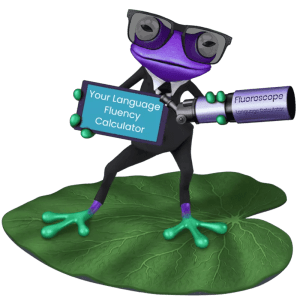Why Learning Effective Business English Conversation Skills Matter

Business English is the corporate and universal language of globalization used in business meetings, marketing, networking, forging business partnerships, and other business activities. Business English conversation skills are crucial to boost the professional development of learners. It is the key to better career opportunities and productive business transactions.
What are Business English Conversation Skills, and how should they be defined?
Business English conversation skills enable you to communicate effectively in business situations. Below are the five conversation skills you must have to become a successful businessperson:
- Active Listening
Active listening is an essential part of effective communication. It requires knowing the meanings of body language, understanding presentation topics, and catching business phrases. Listening carefully to people helps you understand them better and makes you a team player.
- Feedback
Feedback is providing a concise and appropriate response in business communication. Active listening is critical in giving feedback during business negotiations or even casual office correspondence. Giving accurate advice, opinion, or input sparks real business discussions.
- Brevity in Digital Correspondence
Business people are busy people. They do not have all the time to read long paragraphs or listen to lengthy speeches. Brevity is passing across your point clearly using short structured sentences. Creating bullet points and labeling action items makes digital correspondence concise.
- Industry Jargon
Business English is a language used for communication between people who work together within an organization. It is also known as “corporate” English. In this context, it is necessary to understand the jargon or business expressions in your industry. If you are in the Finance industry, you should know financial crisis vocabularies like liquidation, inflation, and tight budget. When you are a project manager, you should know jargon like BOSCARD, agile project management, and Gantt chart.
- Flexibility
In business, you deal with various people like your clients, employees, directors, CEO, and other executive committee members. Flexibility in this context means being able to modify your communication style. You can use casual English expressions with customers but be formal with the CEO.
How should English Learners approach developing practical Business Talk and Conversation Skills?
English language learners can hone their business English skills by using online resources, tools, and language exercises. However, finding resources tailored to their level and needs might be challenging.
To start off successfully, identify your goals and motivations. Why do you want to learn the language of business? Personalize your study plan by listing the topics and knowledge gaps you want to explore. Next, you should set aside time for learning and organize your topics from easiest to most difficult.
It would be ideal to practice business English in real-life situations like in your workplace or school. When not possible, watching actual videos of native speakers while they are conversing is a good alternative.
Learners can also connect to native speakers through instant messaging or video conferencing for a one-on-one conversation. Discussing matters about the weather, global news, and other English topics would enhance your English communication skills.
Eventually, your business conversation skills will be fluid and natural with effort and consistent practice.
What common pitfalls and challenges are faced by language learners trying to develop or improve professional English speaking skills?
Language learners often encounter challenges when improving their English speaking skills. English lessons usually focus on individual learning and lack real-world application. Online courses rarely provide one-on-one speaking opportunities that connect English language learners to native speakers.
Moreover, learners face a decline in their motivation while studying due to a lack of feedback from an expert. They may find it hard to measure their improvement due to a lack of holistic resources. Therefore, it is more effective for learners to study in groups. When not possible, using an application that can measure their improvement and remind them of their goals is crucial in keeping learners motivated.
How does a lack of English speaking confidence, anxiety, or fear of judgement hinder a learner’s ability to develop and improve their conversational ability in corporate environments?
Learning is restricted and slowed by unfavourable emotions like anxiety, fear of criticism, and low confidence. To avoid mistakes, learners tend to stay quiet and not share their ideas due to fear of judgement. Learners remain stagnant when they avoid participating in business meetings.
Teamwork and communication are essential in the corporate environment. The risk of exclusion from business meetings and possibly termination is imminent when learners don’t step out of their shells.
It is normal to feel anxious when beginning to learn business English. However, the key to overcoming your anxiety is to speak, practice, and participate.
What are helpful and practical strategies or tactics to help learners of Business English improve both verbal and non-verbal conversation skills?
Successful learners always seek means to improve their skills for continuous professional development. Learners should start small and gradually increase their exposure to different situations. For instance, listen to podcasts or audiobooks to improve your listening abilities. If you want to improve your writing skills, write emails or letters to friends and family members.
How does learning to read English proficiently help develop more robust corporate communication and conversational ability for the individual and business entity?
Ideation, problem-solving, and brainstorming are core components of business communication. Comprehension is a core English language skill that stems from reading proficiently. Reading also increases learners’ English vocabulary and understanding of business jargon. Learners who read more consequently contribute more to business discussions.
Reading proficiency allows learners to understand news articles, business forecasts, books, blog posts, emails, and meetings’ minutes and agendas. Eventually, this results in active participation in business activities.
Businesspeople avoid miscommunication when they read proficiently. Whether you’re involved in a marketing project, business negotiations, or a casual office discussion, having read something gives you, reading makes you speak with substance.
How do businesses benefit from a workforce with advanced English Business Communication Skills?
Business owners prefer employees with advanced communication skills and those who can speak the business language. When there is a gap, business owners usually provide corporate language training programs for their employees.
A workforce with polished communication skills brings value to the business. Employees who are proficient English speakers, individually, are team players, and as a group, they create a collaborative work environment. Business partners tend to communicate with them for their efficiency and professionalism, thus bringing more venture to the company.
Since a workforce with advanced English business communication skills knows how to get things done, they contribute to the growth and development of a company.
How has digitizing business operations and adopting remote working opportunities for employers and employees increased the importance of practical business communication skills?
Businesses are becoming increasingly reliant on digital technology. Practical business communication skills are, therefore, vital to ensuring you stay ahead of the curve of communication trends. By having core business communication skills, you easily adapt to the etiquette required for emailing, instant messaging, and virtual meetings.

What is the likely outcome for professional employees and businesses that refuse to develop practical communication skills in English over the next ten years?
The answer is simple – they will lose business opportunities. Communication is one of the top ten in-demand future skills. The mode of communication skills is evolving along with technology, and it is our task to keep abreast with the changes.
English is a universal language, and with globalization, it can be the official language of international trade in the near future. Businesses and professionals who do not learn English face the risk of becoming outdated.
With the global economy becoming increasingly competitive, companies must look for ways to increase productivity through better management practices and improved employee performance.
Online exercises are available to develop your business English language skills. However, practicing using real-life situations and real business discussions would make your study worthwhile.
1. Job Interviews
Business English helps learners ace job interviews. There’s a difference in answering “tell me about yourself” when asked by a teacher compared to when it’s the hiring who’s manager asking.
Applicants usually struggle to answer this question. When asked to tell about yourself, answer by translating your personal background into the professional skills the company needs.
Behavioral questions during job interviews must be answered using the STAR method. STAR stands for Situation, Task, Action, and Result.
For example:
Question: Have you ever experienced setting goals for yourself at work? How did you ensure that your goals would be attained?
Answer:
Situation: Two weeks into my previous job, I noticed that documents often get lost, and the office does not have an established filing and tracking system.
Task: I took the initiative to propose and create a document inventory. My supervisor assigned me to lead a team of employees to record documents from the previous year and gave us two months to complete the project.
Action: I dedicated 70% of my time to the project while doing other tasks. My team classified and assigned a code to each document. I took charge of creating a database.
Result: Upon examination, I found about 20 important documents for business projects that were inadvertently ignored. I raised that to my supervisor for appropriate action. Since the database was established, our office workflow has been streamlined, and documents were easily traced.
Always provide a measurable impact instead of an abstract solution when using the STAR method.
Here are five behavioral questions that you can practice answering in a simulated job interview:
1. Tell me about the time you have gone the extra mile to complete a project.
2. Can you give me an instance from your previous position where you had to assume leadership? How did you handle the situation?
3. How do you deal with conflict?
4. If ever you encounter a difficult customer, how would you address their concern?
5. Have you ever experienced receiving negative feedback? If so, how did you handle it?
2. Performance Work Appraisals
You will encounter performance work appraisals in your professional life. When the interviewer questions, “Do you have any questions for me?” during an interview, you can ask about the company culture on performance reviews.
Here are three questions you can ask:
1. Do your employees undergo performance work appraisals? If so, how often do they undergo performance reviews?
2. What are the criteria you use to measure the performance of your employees?
3. How is an excellent performance work appraisal result rewarded in your company?
3. Work Experience
Sharing your work experience with friends and workmates helps with your career path. Here are good questions for this conversation?
- How did you start your journey in this industry?
- What is the most significant task that you handled?
- Have you ever experienced proposing a creative solution to a project?
- What are the important lessons you learned in your X years of experience?
- Where do you see yourself in three years? Do you want to explore other jobs?
4. Business Negotiations
Business negotiations require an advanced level of communication skills. During this business meeting, participants often talk about proposals, business developments, financial situations, and other business deals.
English phrases or business terms that are commonly used during negotiations are:
A deal breaker: a business factor that can break an agreement when not resolved
Example: Sourcing the raw materials from a factory that has poor labor practices is a deal breaker for us.
Bottom line: crucial factor or salient point of a discussion
Example: The bottom line is that we have to create a compelling business presentation for our product.
Counter-proposal: an alternative proposal given when business partners disagree with a business matter
Example: Our counter-proposal is to distribute 25% of the profits to employees and use the 75% for business operations.
Deadlock: there is no progress because of opposing views or parties
Example: Our discussion is going in circles. Let’s pause and meet in a week to address the deadlock on which platform we should use.
To reach a consensus: an expression in business that means to draw an agreement or decision
Example: We need to reach a consensus on what strategy to utilize before the end of this month.
5. Interacting with Potential Customers
There are plenty of topics when interacting with potential customers. Your communication style must be casual but still professional when dealing with customers. Starting with small talk to catch their attention would be a good start to establishing a connection. You can begin by asking your customers how you can help them with their goals. You may need lots of energy when interacting with potential customers.
6. Customer Service
Part of every business is its customer service. When considering a career in sales or customer service, learners can exchange best practices by asking:
- How do you effectively address a customer’s concern? What are your best practices?
- Do you need to pour lots of energy when working in the customer service industry?
- How do you maintain good communication with a customer?
- What makes excellent customer service?
- How do you deal with a difficult customer?
7. Marketing
Marketing and business go hand in hand —one cannot exist without the other. Online businesses invest in a good marketing strategy even when on a tight budget. To know the best marketing strategies, ask these questions:
- What makes a good marketing campaign?
- In a marketing project, how do you come up with creative strategies?
- How do you measure a marketing campaign’s success?
- How do you determine your budget for marketing?
- In your opinion, how did social media affect marketing techniques?
8. Conversation Skills in Sales
Business English is the language of transactions and sales is a crucial part of business transactions. For learners to be successful in sales, they need to know how to read body language, detect the change of voice tones, and speak eloquently. A few questions to ask about sales are:
- What’s the most interesting part of being a salesperson?
- How do you cope when you lose a deal?
- Do you have a structure for how you go about the sales talk?
- How do you ensure to reach your quota?
- What’s the best thing about working in sales?
9. Risk Management
Learners who want to be successful businesspeople should know about risk management. The common risk management evaluation is the SWOT (Strengths, Weaknesses, Opportunities, and Threats) analysis. Good questions about risk management are:
- What are your company’s top risks?
- How do you plan to mitigate it?
- How often do you conduct risk assessments?
10. Difficult Business Times and Conditions
Businesses sometimes go through unfortunate situations like having tight budgets and struggling on creating creative solutions. Language learners may become project managers who have to deal with unfortunate situations. Great questions to navigate this are:
- Have you experienced times when your company encountered difficult conditions?
- How do you help your team when you are facing difficult business situations?
- What strategies do you use to address roadblocks in your business?
11. Business Crisis
Discussing business crises inspire learners to share their ideas, queries, and viewpoints on crisis management. English expressions or business jargons learners should know are:
get out of hand: refers to a situation being hard to control or manage
Example: Call the team and set a meeting ASAP before the damage gets out of hand.
plan B: contingency plan or backup plan
Example: We should craft a plan B just in case we encounter a glitch during the video conference program.
keep the budget lean: decrease the cost of expenditures; save move
Example: We don’t have a time machine to go back in time and save our losses. Keep the budget lean while we recover and avoid unnecessary expenses.
not lose one’s nerve: to stay calm and composed
Example: Keep your level of alertness high if anything goes wrong but don’t lose your nerve
restore confidence: to regain the trust
Example: We need to have a business meeting at your earliest convenience to tackle how we can restore the confidence of our investors.
12. Business Presentations
Learners should know how to structure their presentations during business meetings. First, they should do a topic introduction or give the background of their discussion. Give bullet points under your topic of presentation briefly before explaining. Lastly, summarize and ask if the team has clarifications.
Ask these questions when improving your presentation skills:
- How do I exude confidence when speaking?
- What should I do to prepare before business presentations?
- How should I handle it if someone raises an opposing idea?
13. Small Business
Small businesses are thriving because of online platforms. Business communication learners might want to venture into owning a small business. Here are a few questions to ask:
- What product or service would you offer if you were to put up a small business?
- How do you get funding to sustain your small business?
- What do you think are effective strategies for growing a small business?
- Do you use cute phrases or catchy words when marketing your product?
- How do you plan before launching a small business?
14. Consulting
Consulting is an activity that involves two parties, usually businesses, who work together to solve problems for mutual benefit. Consultants offer advice and guidance on how to resolve issues. A few questions when consulting are:
- In what field are you an expert? Why did you choose that field?
- How do you diagnose a problem and give solutions?
- How do consultants contribute to business developments?
15. Internal Business Meetings
Business often conducts internal business meetings. It is done online or in the physical office space. These meetings can be formal or informal, but either way, a meeting agenda and minutes are crucial. Learners can go the extra mile during these meetings by offering insights.
Here are tips learners can practice for business meetings:
- arrive at the scheduled time
- take important notes
- structure your point before speaking
- use positive body language
- stay on the topic of the presentation and be brief
16. Conversations and Small talk with Colleagues
Small talk with colleagues often happens during break time. There are plenty of topics for small talk. Here are five questions to practice with:
- How was your weekend/vacation?
- Have you watched Series Name? Did you like the new episode?
- How are things going over in your department?
- I love your shoes! Where did you buy them?
- Do you think it will rain today?
Remember to avoid asking personal questions during small talk. Universal topics like sports, weather, and entertainment are acceptable, along with common interests like cooking, pets, and vacation.
17. Managers
Connecting with your manager is part of your work life. You can take advantage of their mentorship and ask the following questions:
- How do you deal with a diverse team of employees? What is your managing style?
- How do you delegate work when you have a project with lots of demands?
- What can I do to contribute to a collaborative work environment?
- Do you have a favorite project that you handled as a project manager?
- When is it applicable to use an obvious solution and creative solution to a problem?
18. Business Leaders
Successful businesspersons are leaders in their field of work. Learners usually encounter them during business conferences or executive-level business meetings. Great questions to ask them are:
- How did you overcome obstacles in your leadership journey?
- What is the greatest lesson you want to share with aspiring leaders?
- What are the skills a good leader must possess?
- Who inspired you to be a successful leader?
- How do you come up with innovative ideas for your company?
19. Internal and External Competition
The English expression, “keep your friends close and your enemies closer,” applies in every business activity. Ask the following questions to know more about your competition:
- What unique feature do you have compared to your competitor?
- How do you plan to stay above the competition?
- Describe a healthy competition. Why is it important?
20. Working Overtime
Working overtime may be required when you have to go the extra mile. Learners may encounter project managers who request them to extend beyond their time. Good questions to ask are:
- Do you have a limit for the number of overtime hours?
- How often do you require employees to render overtime?
- What does the process of filing for overtime look like in your company?
21. Conversations about Salary Raises
Real-life situations learners have to deal with in the work environment include asking about salary raises. Good questions that encourage this discussion are:
- When do you think you should ask for a salary raise?
- What do you have to prepare before asking for a raise?
- How would you handle it if your request was disapproved?
- Where should you base your preferred salary increase?
22. Business Trips
Part of learners’ professional lives is going on business trips. Business English communication skills are vital from the preparation stage to the actual business event. Here are exercises you can practice for business trip preparations:
-
- booking flights
- booking hotels
- preparation of itinerary
- coordinating with event organizers
- researching your destination
Learners can ask the following questions when networking with business people:
- Do you enjoy going on business trips? Why?
- What part of business trips do you always look forward to?
- How do you stay connected with business partners you meet during your trips?
- Why is attending business trips important for you?
- Where do you plan to go on your next business trip?
23. Working Abroad or Remotely
Another language exercise for learners is venturing to work abroad or remotely. With the prevalence of virtual offices, one can consider working remotely and staying in their home country. In contrast, you can also work abroad in an office setting and immerse yourself with native speakers. You can ask these questions when discussing working abroad v.s remotely:
- Which country do you want to work in? Why?
- What preparations should you perform before working abroad?
- How would you deal with cultural differences?
- Why do you prefer working remotely?
- How do you create an office space within your home when working remotely?
24. Business Conversations about Investing
Business talk is not complete without the topic of financial situations and investing. Investing is an important topic among business partners, not just during business negotiations but also in their personal finances.
The common business terms used in investing conversations are:
| dividends | emergency fund | index | Exchange-Traded Fund (ETF) |
| blue chip | diversification | mutual fund | portfolio |
| stocks | bonds | equities | risk tolerance |
English language learners can start the conversation about investing using these questions:
- What are your investment goals? How do you plan to achieve it?
- How did you start building your emergency fund?
- What do you consider a good investment? Are mutual funds better than individual stocks?
- What is your risk tolerance? Why?
- How do you diversify your portfolio?
25. About Retirement
There are plenty of topics for improving your business English and talking about retirement with your colleagues is one of those. Use these five common questions about this topic in your conversation:
- At what age do you see yourself retiring? Why?
- What activities do you want to do after retiring?
- What changes do you expect to see in your daily life after retiring?
26. Legal Rules & Regulations
In business, you need to communicate broadly with various disciplines, including law. You don’t have to go in-depth but knowing common law-related business jargon would broaden your vocabulary.
These are common law terminologies that are used in business activities
| franchising | due diligence | jurisdiction |
| contract | employment contract | ratification |
| confidentiality agreement | joint venture | quorum |
27. Conversation Skills about Termination
Termination is an unfortunate situation one might encounter. It is considered a taboo topic, but learners must learn how to navigate this subject. When discussing termination, the leader must foster an open-minded and non-judgmental environment.
Here are a few questions that encourage a healthy discussion about termination:
1. Have you ever been laid off? If yes, would you mind sharing your experience?
2. What important lesson did you learn from being terminated?
3. If you could turn back time, what would you have done differently?
4. What are the best practices to avoid getting terminated?
5. How did you cope after your termination? Did it affect your career?

Conclusion
Business English is the language of trade every learner should master. It consists of complicated idioms or business jargon that learners should unlock. Effective business communications skills will give learners leverage both in their academic and professional lives. Although you can learn Business English Online, it is ideal to study with a native English speaker and practice using real-life situations.
Teachers can simulate business presentations, job interviews, and business small talk among others to test the flexibility of learners’ communication styles.

Learn from History – Follow the Science – Listen to the Experts
What’s the one thing that makes LillyPad so special? Lilly! She is a personal English tutor, and has people talking all over the world! Lilly makes improving your English easy. With Lilly, you can read in four different ways, and you can read just about anything you love. And learning with Lilly, well that’s what you call liberating!
For learners of all ages striving to improve their English, LillyPad combines the most scientifically studied and recommended path to achieving English fluency and proficiency with today’s most brilliant technologies!
Additionally, the platform incorporates goal-setting capabilities, essential tracking & reporting, gamification, anywhere-anytime convenience, and significant cost savings compared to traditional tutoring methodologies.
At LillyPad, everything we do is focused on delivering a personalized journey that is meaningful and life-changing for our members. LillyPad isn’t just the next chapter in English learning…
…it’s a whole new story!
Do you want to improve your English? Visit www.lillypad.ai.
Follow us on Facebook or Instagram!

Valentina Gagliardi
Valentina has always been a teacher at heart. After spending eight years teaching college-level English, she realised that her true passion was helping people learn and grow – especially when it came to learning English. She firmly believes that in order for language learning to be successful, it’s important to create a comfortable and welcoming environment where students feel safe to experiment and take risks. When she’s not writing for the Lillypad community, Valentina loves travelling, reading and going for long walks with her dog Freddy.










